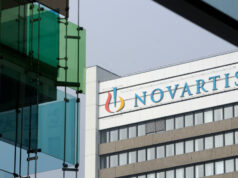
Medical device startup CardioMech announced this week that it has raised $13 million in new capital, bringing its total funding to $42 million. With the fresh funds, the company hopes to advance the development and validation of its flagship device, which is designed to treat mitral valve disease.
Founded in 2015, CardioMech is based in Norway and has a fully owned subsidiary in Minnesota. All of the company’s research and development takes place in Minnesota, said CEO Rick Nehm.
CardioMech’s device seeks to treat degenerative mitral valve regurgitation (DMR). This refers to a cardiac condition in which the mitral valve, which separates the left atrium and left ventricle of the heart, doesn’t close properly, allowing blood to flow backward into the atrium.
“DMR is a highly prevalent, debilitating and, if not treated, deadly disease,” Nehm pointed out.
With its transcatheter mitral valve chordal repair technology, CardioMech simply inserts an artificial chord into a patient’s heart to “restore nature,” he explained. The device is an artificial chord meant to reduce regurgitation or eliminate it altogether — all with the goal of restoring a patient’s natural anatomy.
The startup uses a catheter device to access the left atrium and places an anchor in the mitral valve leaflet. Then, CardioMech places another anchor in the left ventricular wall, allowing the artificial chord to be tightened until the regurgitation is reduced or eliminated, Nehm declared.
The company’s catheter-based device seeks to offer an uncomplicated, direct procedure for patients eligible for open-heart surgery as well as those considered eligible for the surgery. The product has potential to decrease the need for open-heart surgery, as well as reduce the need for cautious waiting in younger and healthier patients, Nehm noted.
Some other companies, such as NeoChord and CoreMedic, are developing similar technologies, he pointed out.
One of the aspects that makes CardioMech’s device unique is that it does not preclude the use of other devices in the future — this makes it “what physicians are calling a first-line therapy,” Nehm said. Some other devices, once implanted, prevent the patient from ever having another procedure, he added.
CardioMech expects to begin enrolling patients in an FDA early feasibility study in the first quarter of this year, according to Nehm.
He said that the transcatheter mitral valve chordal repair market is currently valued between $4-6 billion, due to the increasing prevalence of DMR and the growing demand for less invasive treatment options. As hospitals and patients continue to seek effective solutions with reduced recovery times and improved outcomes, more and more products could enter the transcatheter mitral valve chordal repair market over the coming years.
Photo: jpa1999, Getty Images








